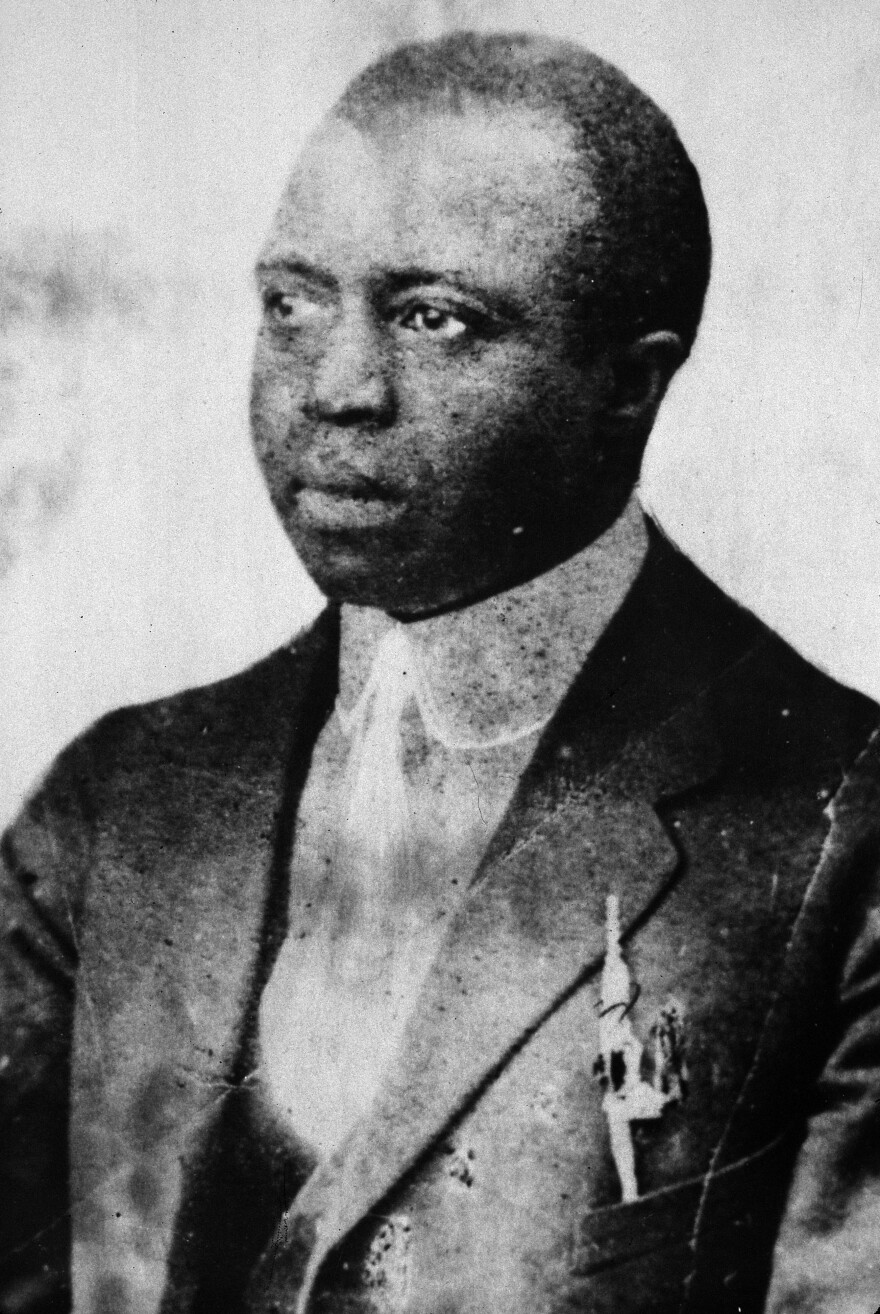Although he concentrated on smaller pieces for piano, Scott Joplin wrote an opera. Joplin wrote Treemonisha in 1910 and had a vocal/piano score published the following year at his own expense. Joplin presented parts of the work to a Harlem audience, but it was met with little enthusiasm. Treemonisha wasn't fully performed until 1975 by Houston Grand Opera with orchestration by Gunther Schuller. It received a "historically informed" arrangement in 2003 by Rick Benjamin to better reflect the instrumental forces at Joplin's disposal.
It's difficult to describe Treemonisha in a few words. It's not grand opera. But it's not completely a Ragtime opera either. There are stand-out songs in the work, including Aunt Dinah has blowed the horn and A real slow drag. The opera takes place on a former slave plantation near Texarkana in 1884. Treemonisha is a young educated former slave who rallies her community to throw away the shackles of ignorance and superstition. She is kidnapped and almost murdered, but is saved. The people choose her as their leader as they reject mysticism and realise the value of education.
Treemonisha has received recent performances in the Schuller arrangement. Rick Benjamin presents selections of his arrangement occasionally and released a recording of the full score in 2011.

